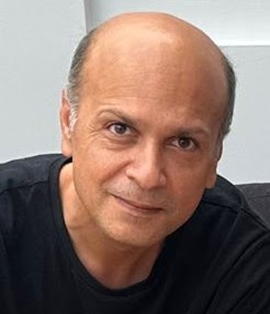Rīga Stradiņš University will host a lecture by Dr Vivek Trivedi (University of Kent, UK) themed Solvent-free material processing for the development of drug delivery systems using supercritical carbon dioxide (scCO2) on Tuesday, 20 August.
Agenda
- Personal scientific interests and scientific directions of Chemistry and Drug delivery Group
- Solvent-free material processing for the development of drug delivery systems using supercritical carbon dioxide
- Questions and answers
Outline
Dr Vivek Trivedi
Senior Lecturer in Drug Delivery
Head of Chemistry and Drug Delivery Group
Medway School of Pharmacy
University of Kent
Chatham Maritime
Kent, UK

Carbon dioxide (CO2) is the most commonly used supercritical fluid because of its relatively mild operating conditions (31.1°C and 72.8 bar) and easily tuneable properties. Moreover, the ability of CO2 to act as a solvent, solute, and plasticiser has made it highly desirable in the field of excipient processing, particle formation, and drug encapsulation. The dissolution of CO2 is known to affect the glass transition or melting temperature of numerous polymers and fats. This presentation provides an overview of the applications of scCO2 primarily as a solute or plasticiser and how it can be employed to manipulate excipients’ properties to develop various pharmaceutically important systems. The presentation includes examples of melting point depression caused by the dissolution of scCO2 in the crystalline matrix, solvent-free preparation of drug cyclodextrin complexes, drug loading in organic and inorganic excipients, and formation of pharmaceutical salts amongst others.
The application of scCO2 provides an excellent green platform for the preparation of drug delivery systems which can either completely avoid the need for organic solvents or reduce their usage during processing. These types of processing strategies are important not only from the environmental perspective but can be crucial to address concerns related to the residual solvents in the final dosage form. The scCO2 can be used as a solvent, antisolvent and additive to develop various formulations in an organic solvent, oxygen, and water-free environment. Formulations such as solid dispersions and drug-cyclodextrin complexes can be easily prepared in scCO2 using its additive properties to lower the melting/glass transition temperature of APIs and excipients.
This presentation aims to provide an overview of the approaches developed/applied in our lab to develop formulations using scCO2 as a media.
Location
Tā kā Rīgas Stradiņa universitāte ir publiska iestāde, pasākuma laikā jūs varat tikt fotografēts un/ vai filmēts. Fotogrāfijas un video var tikt publicēts universitātes mājaslapā, sociālajos medijos u. tml. Vairāk par savām tiesībām un iespēju iebilst pret šādu datu apstrādi varat uzzināt RSU Privātuma politikā. Ja iebilstat pret personas datu apstrādi, lūdzam par to informēt, rakstot uz rsu rsu[pnkts]lv (rsu[at]rsu[dot]lv).
rsu[pnkts]lv (rsu[at]rsu[dot]lv).
As Rīga Stradiņš University (RSU) is a public institution you could be photographed and/or filmed during the event. Your personal data might be used to further the interests of RSU, e.g. for marketing or communication activities (incl. social media coverage). Read more about your rights see the RSU Privacy Policy. Should you have any objections to your personal data being processed please inform us via e-mail at rsu rsu[pnkts]lv (rsu[at]rsu[dot]lv).
rsu[pnkts]lv (rsu[at]rsu[dot]lv).


